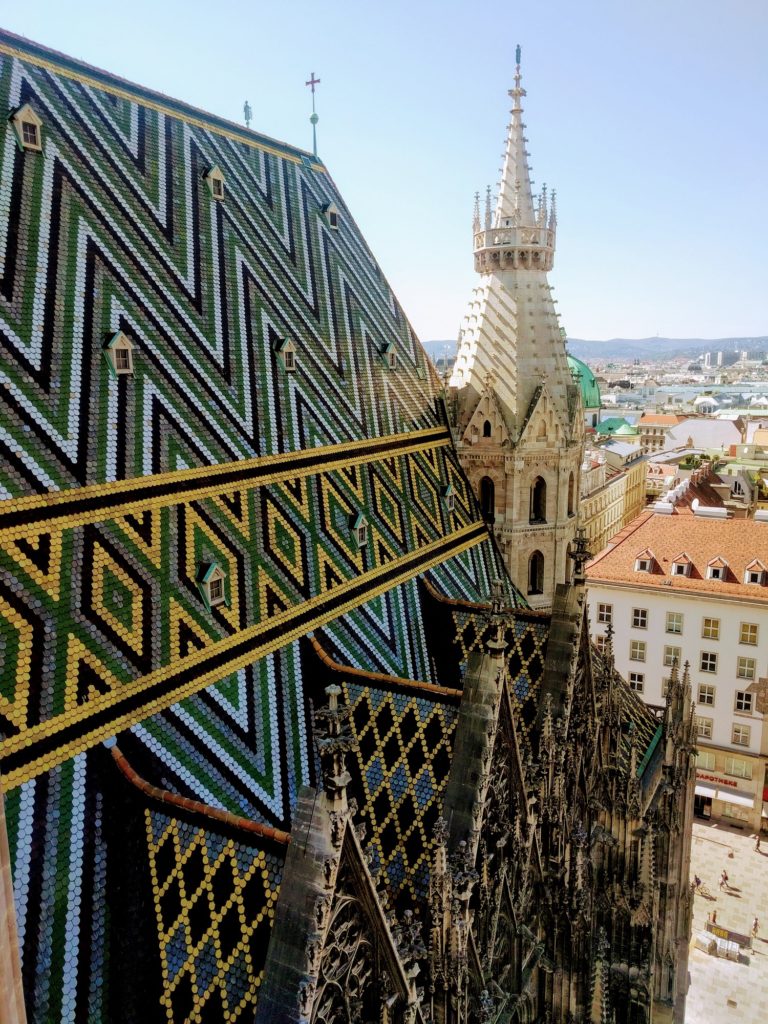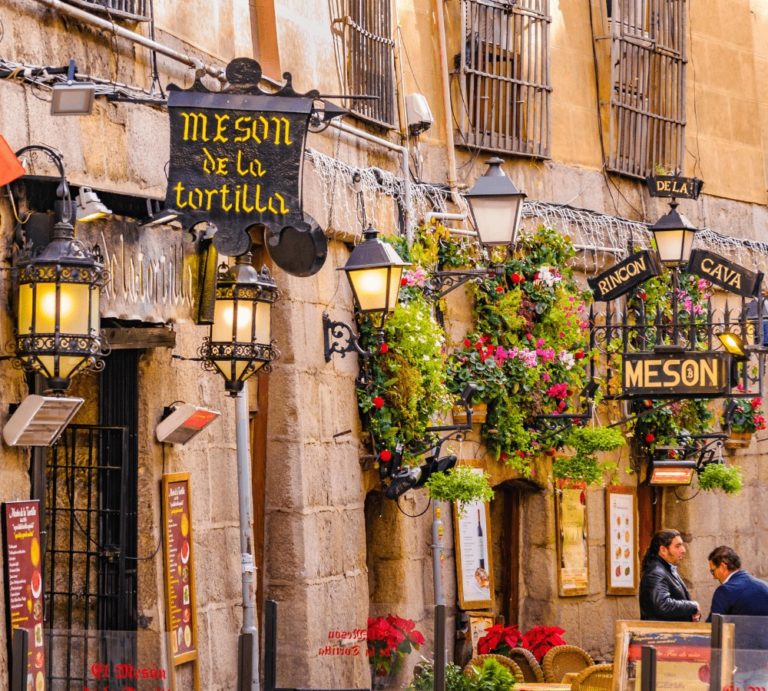Is Türkiye Vegan-Friendly?
Can a country famous for its love of kebabs really be vegan-friendly? Before my trip to Türkiye, I assumed it would be a lot like my experience in Morocco — some solid options in big cities, but slim pickings beyond that.
There was one key difference: in Morocco, I had fantastic local support. In Türkiye? Not so much. My main source of “help” was someone who insisted that soup without butter was basically a crime. I quickly realized I’d be eating a lot of salad.
That’s not to say traveling vegan in Türkiye is impossible — it’s absolutely doable — but it does take a bit more prep or truly helpful local guidance. Without it, you might find yourself in a bit of a culinary rut. This guide will walk you through the common challenges, the easiest cities for vegan travelers, and tips to make your trip both delicious and stress-free.

Will Turks Understand What Vegan Means?
Overall, the term isn’t well understood throughout the country. In large cities, such as Istanbul, there are numerous fully vegan spots, signaling a rise in interest and understanding. However, in smaller towns, this is not as common. Most menus aren’t clearly labeled, and when they were, they usually stopped at “vegetarian.” I even asked a local about vegan options and was enthusiastically pointed toward cheese ravioli—close, but not quite, my friend! It’s best to share what you don’t eat and avoid using the term altogether; otherwise, you might end up with something you don’t want.
Are Any Traditional Turkish Foods Vegan?
Some things seem to be consistently vegan-friendly (always confirm):
- Imam Bayıldı: Stuffed eggplant
- Sarma: Stuffed grape leaves
- Mercimek Köftesi: Lentil patties
- Zeytinyağlı Taze Fasulye: Green beans in olive oil
- Çoban Salatası: Shepard’s salad (I ate this more than I care to admit throughout Turkey, and sometimes it includes cheese)
- Kısır: Bulgur salad
- Simit: Turkish sesame bread
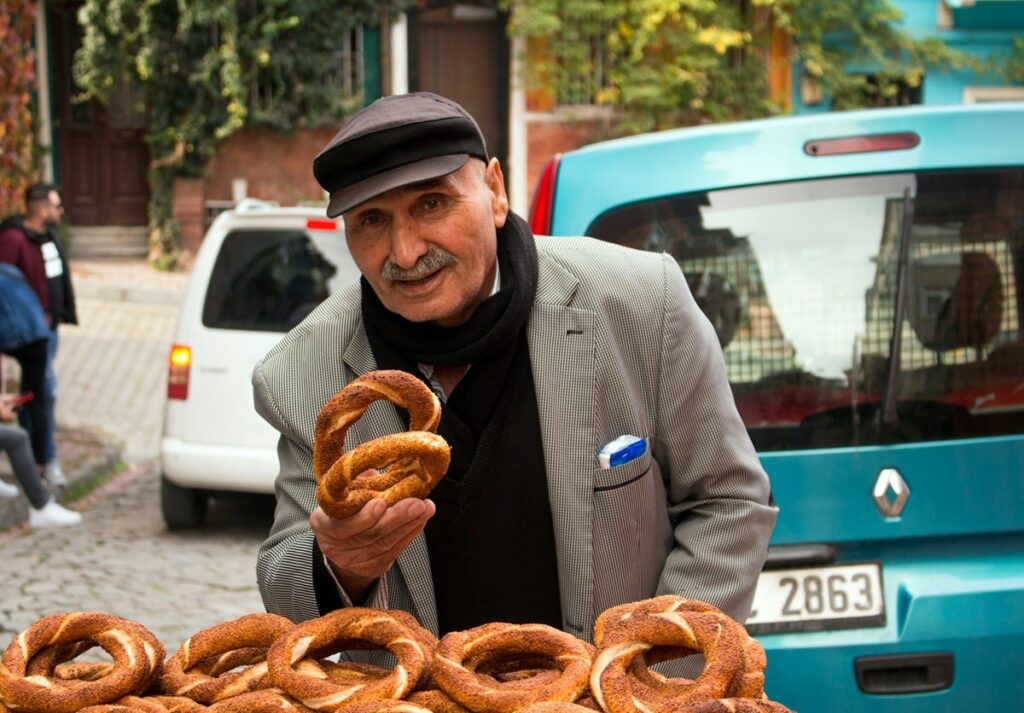
I probably saw the Shepard’s salad on menus the most consistently, followed by grape leaves. Another fairly consistent item was mixed vegetables — I know, not ideal, but when in a pinch, it helps (watch out for butter).
Heads up, rice is probably not vegan! It’s very common for Turks to add butter to rice. A few times, places made a side of rice for me separately.
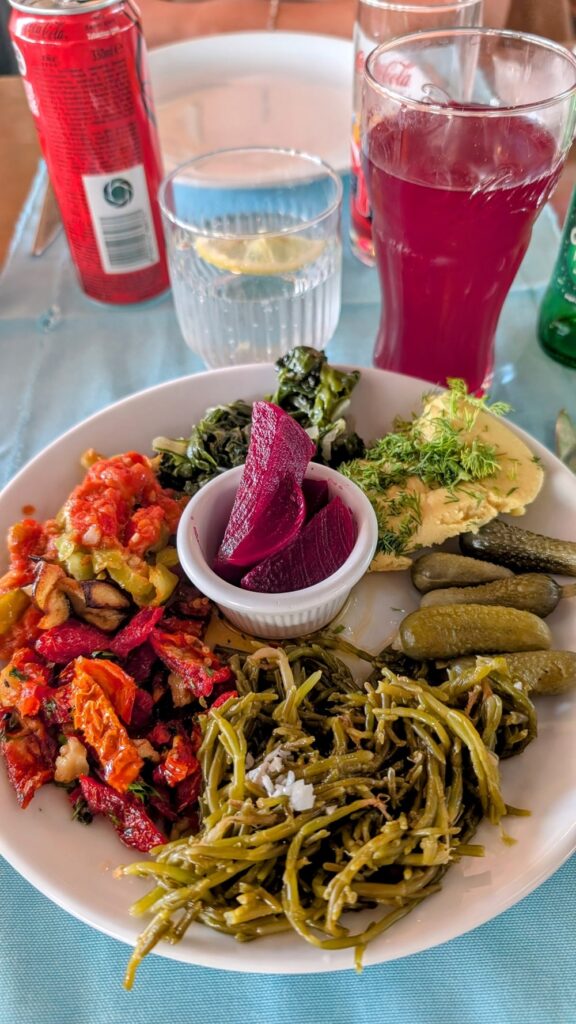
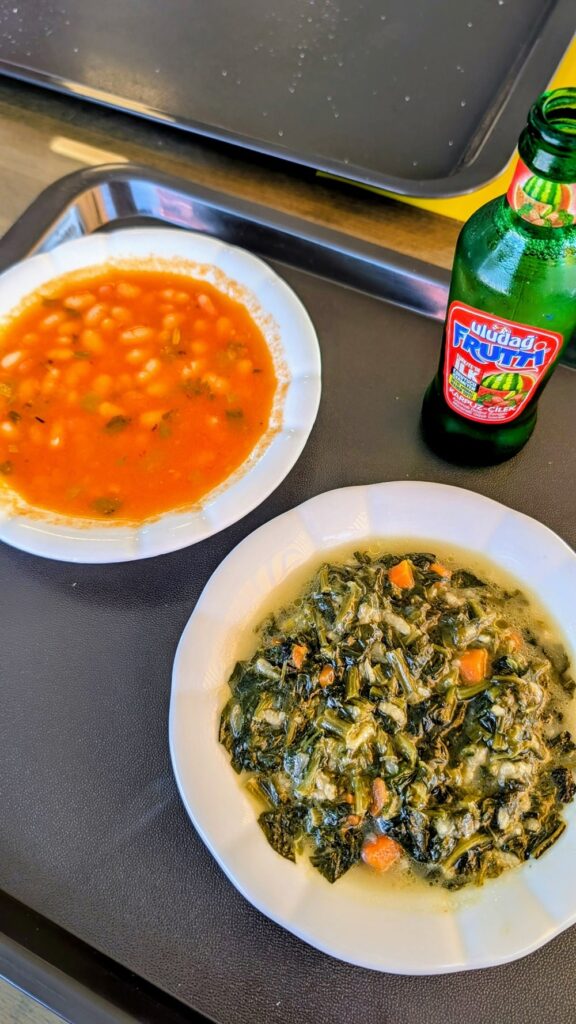
Are Turkish Delights (Lokum) & Other Sweets Vegan?
Generally, yes, the popular candy is vegan! These chewy, sugar-dusted cubes have been around since the 1700s and are one of the oldest sweets still enjoyed today. Be sure to double-check ingredients, but many spots still stick to the old-school, animal-free recipes. Generally, they are made of sugar, starch, chopped dates, pistachios, hazelnuts, or walnuts and flavored with fruit.
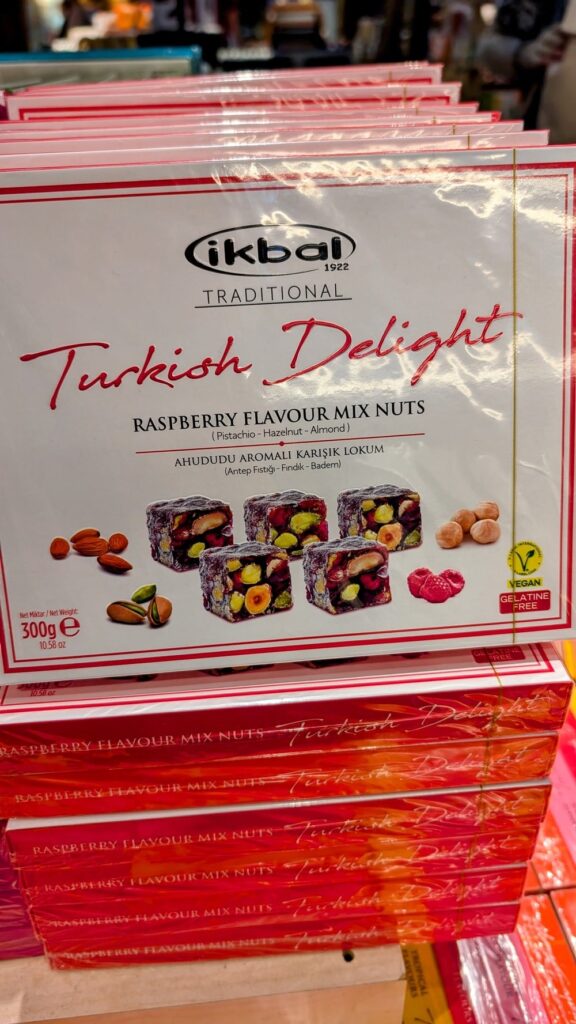
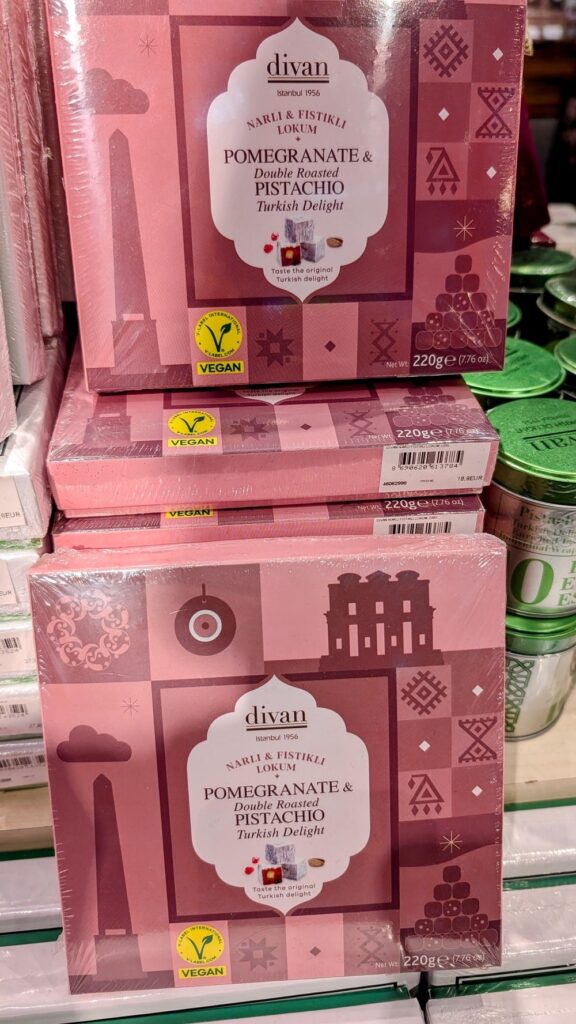
I also found that the Turkish chocolate brands Ülker and Glories have vegan chocolate bars, they were delicious. I found Glories at a gas station and Ülker was just about everywhere. Glories is well-marked (as you can see) and Ülker says, suitable for vegans under the ingredients (in Turkish).
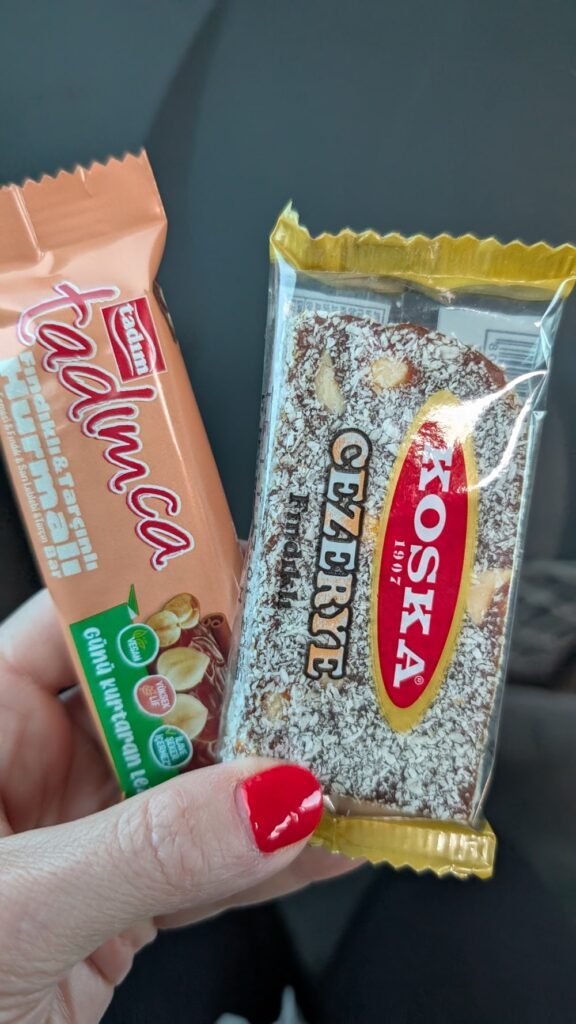
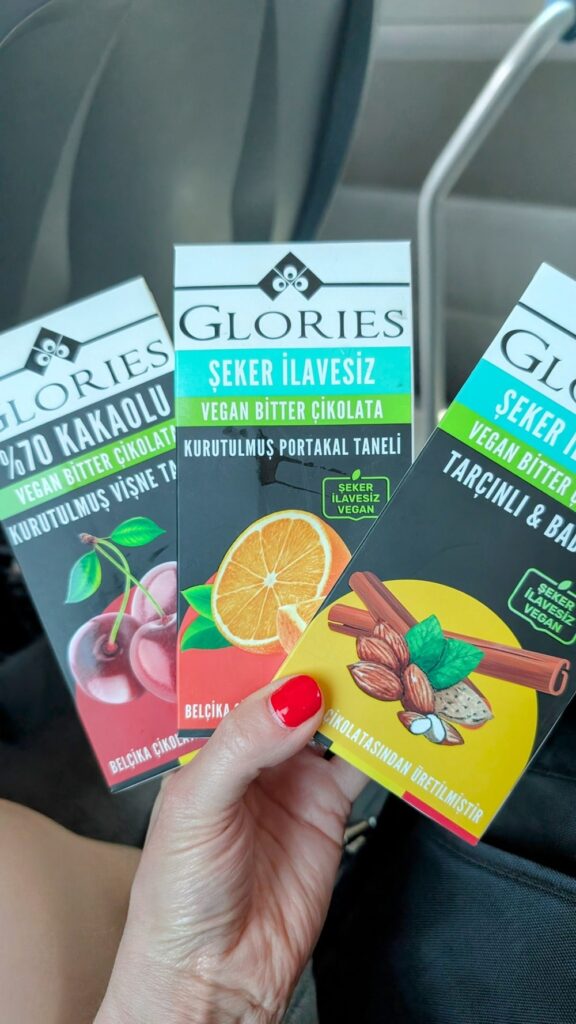
Are Non-Dairy Milk Options Easy to Find in Cafes & Hotels?
Unfortunately, non-dairy milk options aren’t readily available everywhere, especially in hotels. It’s easiest to find options in cafes in Istanbul, but even then, it was a little hit or miss. I bought mini almond milk cartons and took them with me throughout Türkiye. During my trip, I stayed in five different hotels (with varying levels of service), and none of them offered non-dairy milk options at breakfast. There is one consistent place to find non-dairy options — Starbucks. There are cafes throughout the country; if you’re out of options, go there.
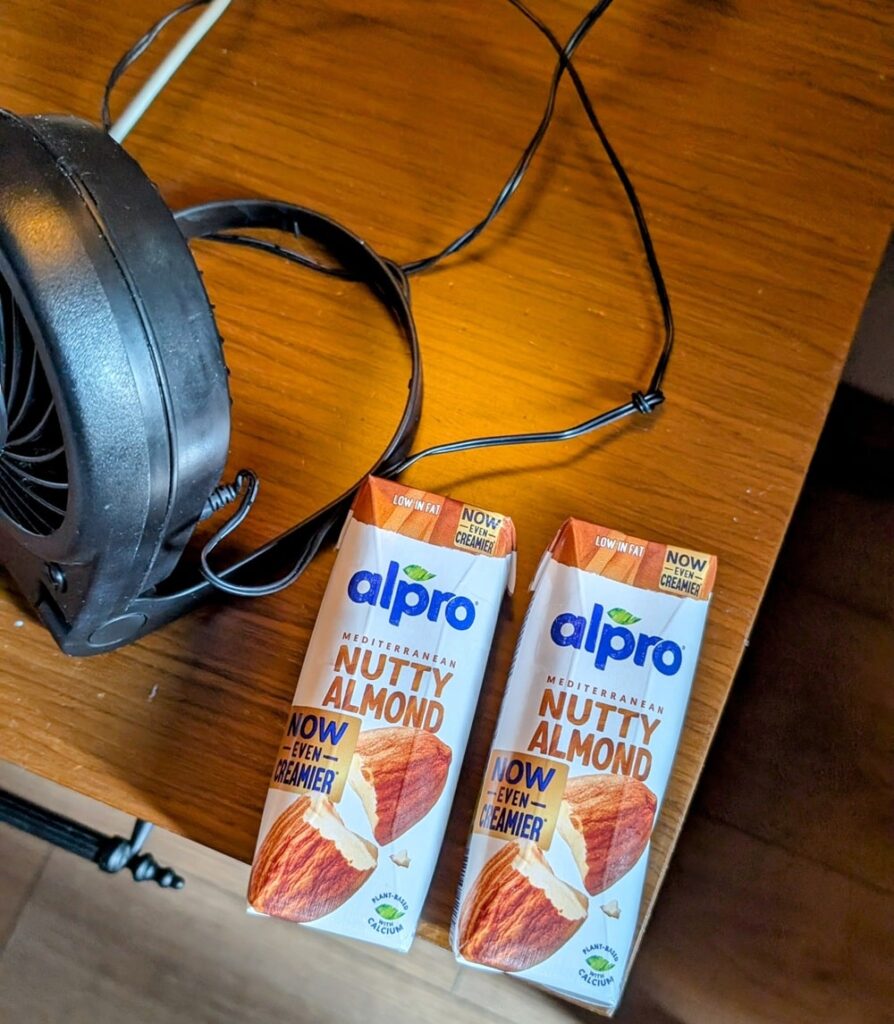
What Are the Most Vegan-Friendly Cities in Türkiye?
By far, Istanbul is the most vegan-friendly city in Türkiye. According to Happy Cow, there are over 50 vegan and vegetarian restaurants throughout the city. You’ll find everything from Pad Thai to veganized doner and kebabs.
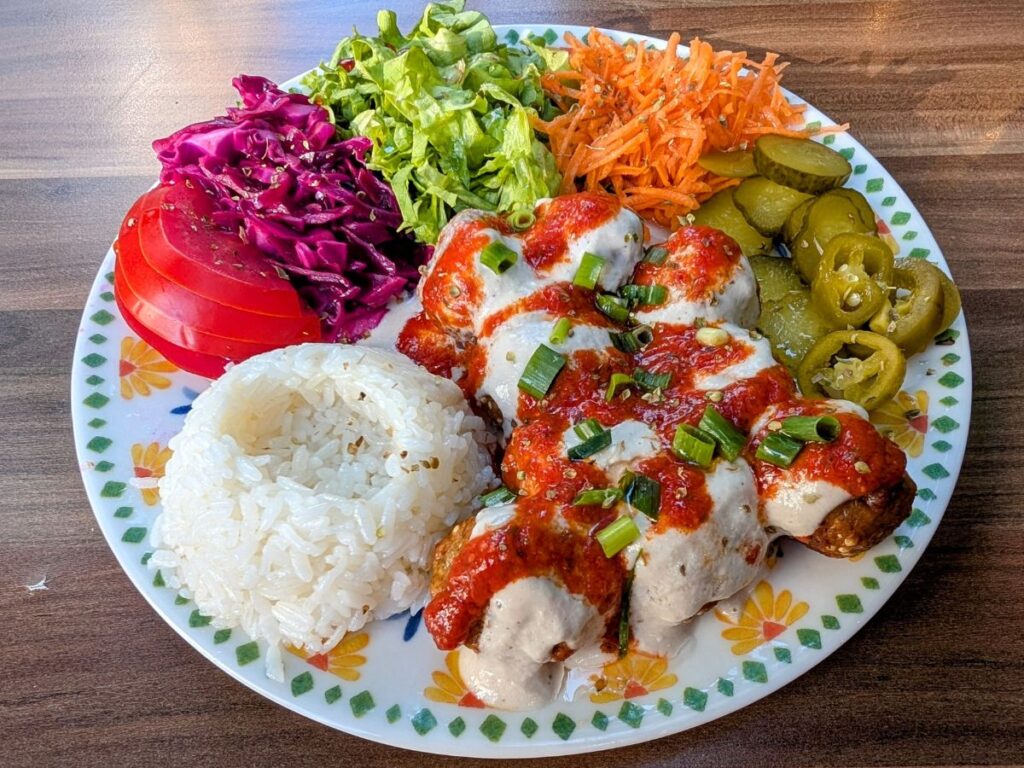
Outside of Istanbul, the number of fully vegan and vegetarian options drop significantly. Other cities to consider visiting include Antalya, Bodrum, Izmir, and Ankara. All of these cities have between 3 – 8 vegan/vegetarian restaurants or cafes. These cities are all larger, many are popular with visitors, making it a little easier to find vegan options in restaurants and markets as well.
However, have no fear if your travels take you outside of those areas! I was able to find options at gas stations (bean soup, chocolate, and other packaged treats) and a mix of mezze options in other smaller towns like Ürgüp (in Cappadocia). Since the Cappadocia region receives many tourists, you will be able to find something, even in small towns.
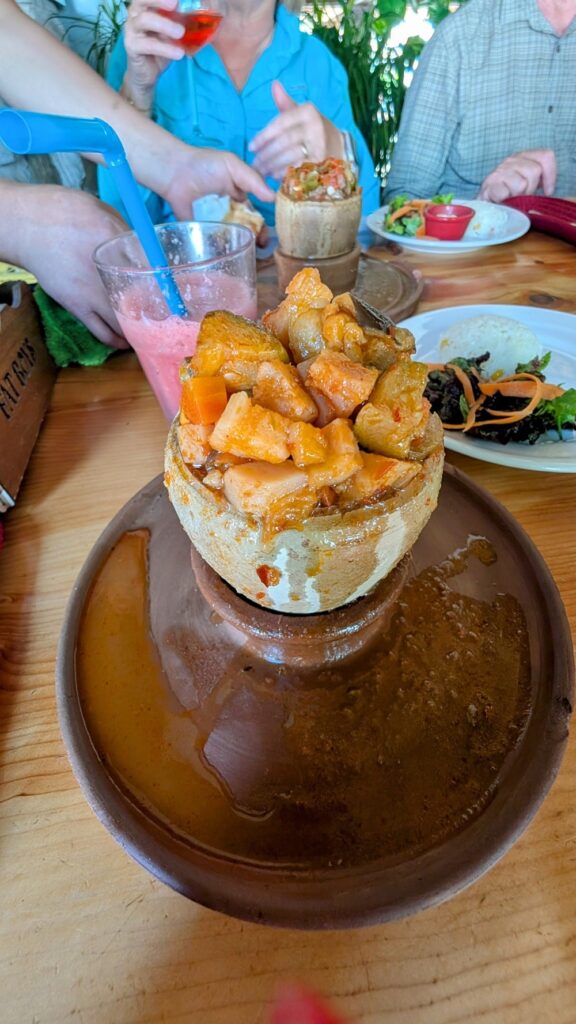
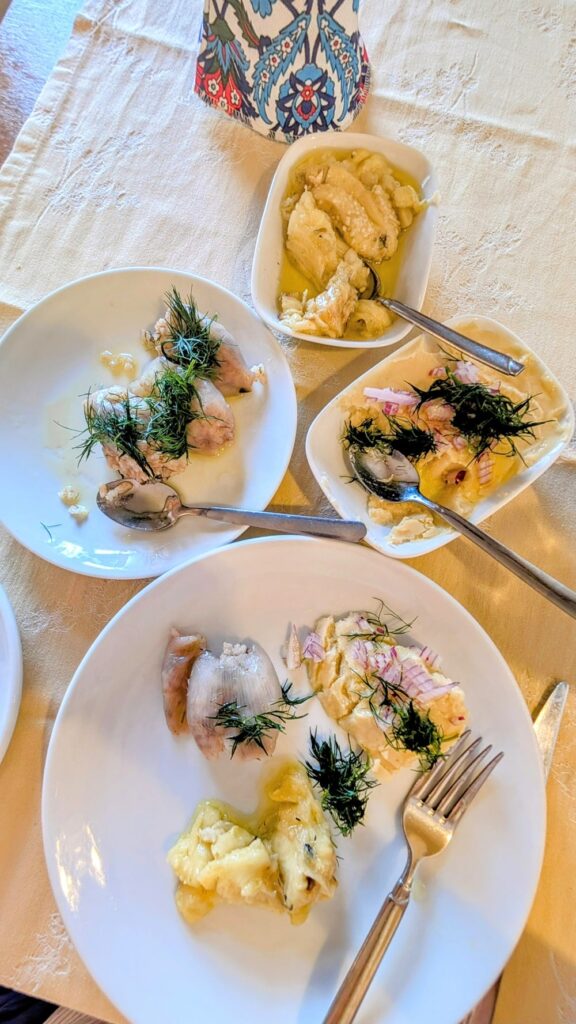
One essential tool that you will want to make sure that you have (on your phone) is Google Translate. This saved me so much hassle in restaurants, markets, and convenience stores. It’s easy to use; you can take a photo of an ingredients label and it will translate it, or you can type in the text (it’s easiest just to take a photo).
Stray Animals in Türkiye
If you’re planning a trip to Türkiye, you’ve likely seen the countless videos — or maybe even the documentary Kedi — featuring the beloved street cats of Istanbul. While cats tend to get most of the attention (we’ll get to why), there are also a significant number of stray dogs across the country.
So, why are there so many cats roaming Türkiye’s streets? Their presence is deeply rooted in both cultural and religious traditions. In Islam, cats are considered clean and cherished animals, which is why you’ll often notice their presence in many predominantly Muslim countries, like Morocco. For centuries, cats have coexisted with communities in Türkiye, helping to control pests and, in turn, earning a special place in people’s hearts. In cities like Istanbul, it’s common to see locals leave out food and water or even build small shelters to care for them. Many travelers are surprised to see how healthy the cats appear.
But there’s another side to this story. According to one local volunteer (check out this article he wrote about the stray animal situation) who cares for street cats, most travelers only see the more affluent parts of Istanbul and Türkiye — areas where residents are often better educated and more compassionate toward animals. In poorer neighborhoods, the reality is often much harsher: animals struggle to find food and clean water, are more vulnerable to disease, and some suffer horrific abuse.
It’s estimated that Istanbul alone is home to over 125,000 stray cats; many estimate that number is much larger. While cats are generally tolerated or even adored, dogs are not viewed with the same affection. Opinions within Islam vary, but many consider dogs to be dirty or dangerous. Türkiye’s stray dog population has spiraled out of control — estimated at around 4 million. In response, the government passed a law in 2024 calling for the removal of stray dogs from the streets, largely through euthanasia. The move sparked outrage, with critics blaming the government’s failure to enforce previous animal welfare laws and spay/neuter programs.
So, why does all of this matter?
While tourists are snapping photos, buying cat-themed souvenirs, and sharing cute videos online, a larger, more troubling reality is being overlooked. That romanticized image of a country coexisting peacefully with its street animals is being used to sell tourism, masking a very real crisis of overpopulation, neglect, and cruelty. Awareness is the first step in driving real change—not just for the sake of the animals but for the integrity of the places we choose to visit.
If you’re going to share photos or videos, consider showing the animals that aren’t picture-perfect — the ones who clearly need help — and tag local tourism organizations to put pressure on them to take real action. Nothing will be done if pressure isn’t applied.
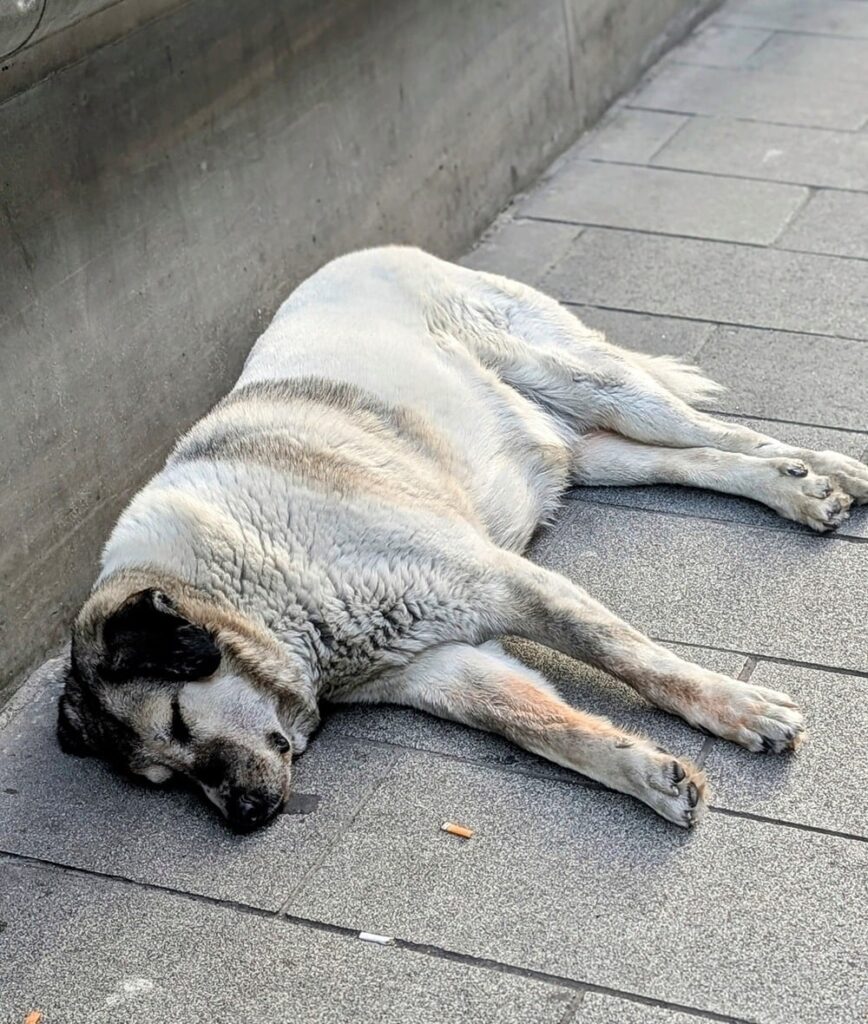
Vegan-Friendly Türkiye Wrap Up
If you’re looking for more help to plan your vegan adventure through Türkiye (or beyond), check out these other guides and articles. Also, if you’re interested in visiting Türkiye but don’t want to plan the trip yourself, reach out, we can help!





